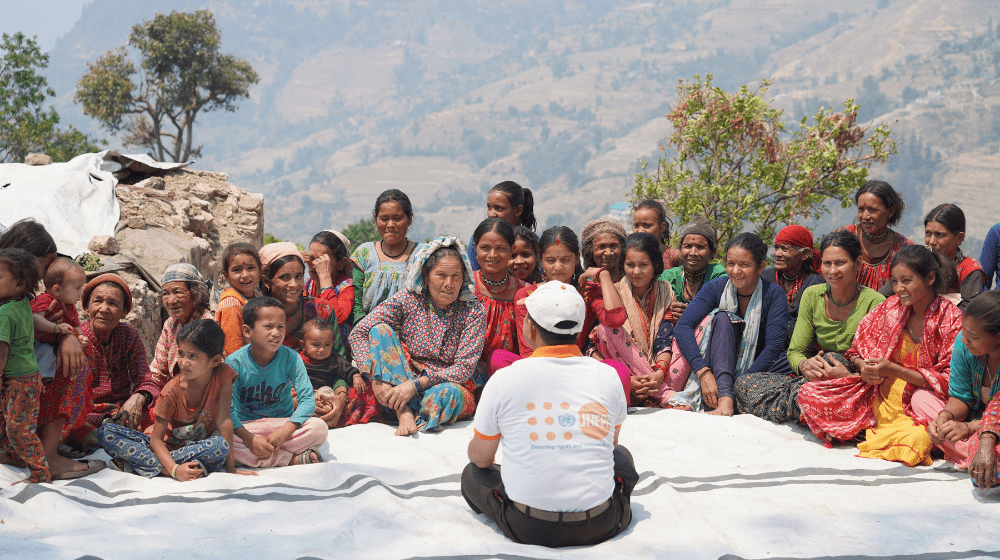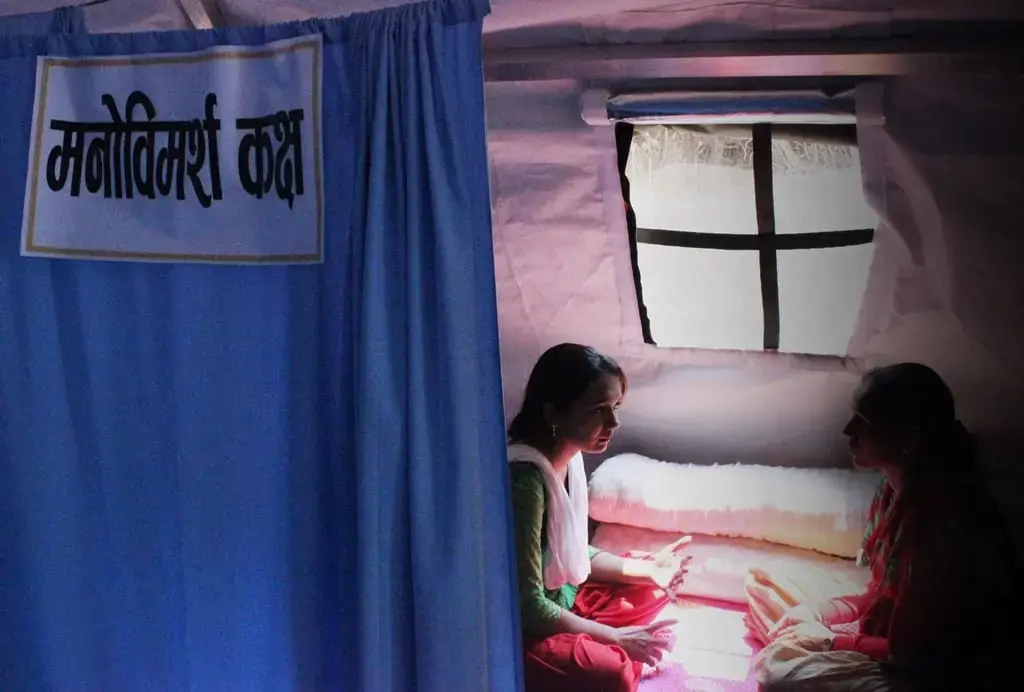In 2022, in the remote Purbichauki Municipality of Doti of Far-Western Nepal, the lives of the women were intricately woven into the rhythms of their community. As the winds of November swept through the fields, Rekha Bohra, a resilient 34-year-old, was busy gathering the harvest alongside her neighbors. Their days were long and demanding, but their spirits remained high. Little did they know that the tranquility of the evening would soon be shattered.
At around 9 PM, the first tremors reverberated through the ground, interrupting their dinner. With exhaustion seeping into their bones, they finally decided to retire for the night, hoping that rest would calm their apprehensions. Tremors continued to rumble intermittently, shaking their beds every half hour.
In the dead of night, around 2:30 AM, chaos erupted. A deafening roar followed by a violent shaking roused Rekha from her slumber. Clutching her child, she stumbled into the darkness, her heart pounding in her chest. The once-familiar houses now crumbled like paper, reduced to rubble. The night was chilling, and they were left with nothing—no shelter, no clothes, and no food.
The hardships were intensified for Ganga Devi Bohara, a 22-year-old mother of two. Her youngest child had been born just three days after the earthquake. She recounted the harrowing experience of giving birth alone in a tent, surrounded by darkness and uncertainty. Her first child had been born in the safety of their home, but now, she faced the challenges of nurturing her newborn in an environment fraught with danger.
“It was scary to give birth like that, and there was no home to go back to. I know that if we were able to live in the house, she would be much healthier. Just this morning, there was a snake on her body. And this isn’t the first time this has happened, it has happened many times before”
Amidst the rubble, girls like Devi Bhool, at 17, were grappling with the complexities of adolescence. The earthquake had disrupted not only their homes but also their personal routines. The onset of menstruation is a natural yet an already perplexing transition for many young girls, especially in the context of Nepal given the harmful practices involved. Now this was further complicated by the disaster. Devi's voice resonated with many as she spoke of the embarrassment of bleeding openly, but the dignity kits provided by the United Nations Population Fund gave adolescents like Devi a glimmer of hope. These kits contained essential items, from clothes,torch light to sanitary pads, bringing some semblance of normalcy to their lives.
As days turned into weeks, the women of Purbichauki Municipality gradually adapted to their new reality. They found strength in their unity, sharing knowledge and experiences. In nearby Karamandu Municipality in the same district, another narrative unfolded. The dignity kits they received brought not only relief but also enlightenment. The women were introduced to the concept of sanitary pads and underwear, for the very first time. Through guidance from younger girls, they learned how to use and dispose of these essentials, making strides toward maintaining their dignity and hygiene. More than that, the information provided to them on sexual and reproductive health services, managing menstruation during disasters, and psychosocial counselling support in the aftermath of disaster while distributing these kits empowered them with informed decision making.
For the older women who had lived through different times, the transition was more nuanced. Through the engagement of UNFPA they discovered that periods need not be a source of embarrassment; rather, they could be managed with dignity and grace. In the face of change, they happily embraced the knowledge shared by their younger counterparts, demonstrating the power of intergenerational dialogue and collaboration.
Beyond personal transformations, the women recognized the importance of health and hygiene for their children. The vulnerability of living in tents led to outbreaks of diseases like diarrhoea and cholera among the young ones. They understood that their journey was not just about themselves but also about securing a better future for their families.
Today, almost a year later, UNFPA continues to provide support to these communities. Over 1400 women have received comprehensive reproductive health services through three mobile camps since the earthquake. Similarly, women friendly spaces have been set up to provide a safe shelter for more than 450 women, where gender-based violence awareness and prevention support and referral services are also given. As Nepal will soon experience the winter season in the coming months, 1300 families will receive winter kits to help navigate the harsh climate conditions. UNFPA also hopes to introduce the Rupantaran programme - a life skill transformation training package tailored for youth and adolescents which successfully runs in other parts of Nepal to enhance the agency, knowledge and skills of young people.
In the face of adversity, these women stood as a testament to human resilience and the power of community support. The earthquake had shattered their world, but it also paved the way for newfound strength and unity. Their stories, like threads woven together, formed a tapestry of courage, adaptation, and empowerment. As they continued to rebuild their lives, they carried with them the lessons learned during those fateful days, turning disaster into an opportunity for growth and transformation.
In the midst of devastation, the women of Doti continue to embrace change and stand united, demonstrating that adversity can be turned into an opportunity for growth. The transformative journey they embarked upon, marked by resilience and collaboration, reminds us that, with the right support, communities can overcome any challenge and #NoMatterWhat we stand ready to support their unwavering determination to thrive.




